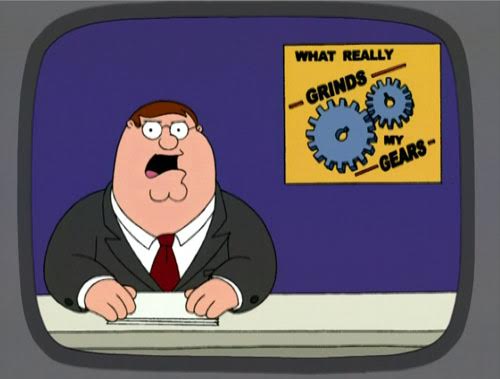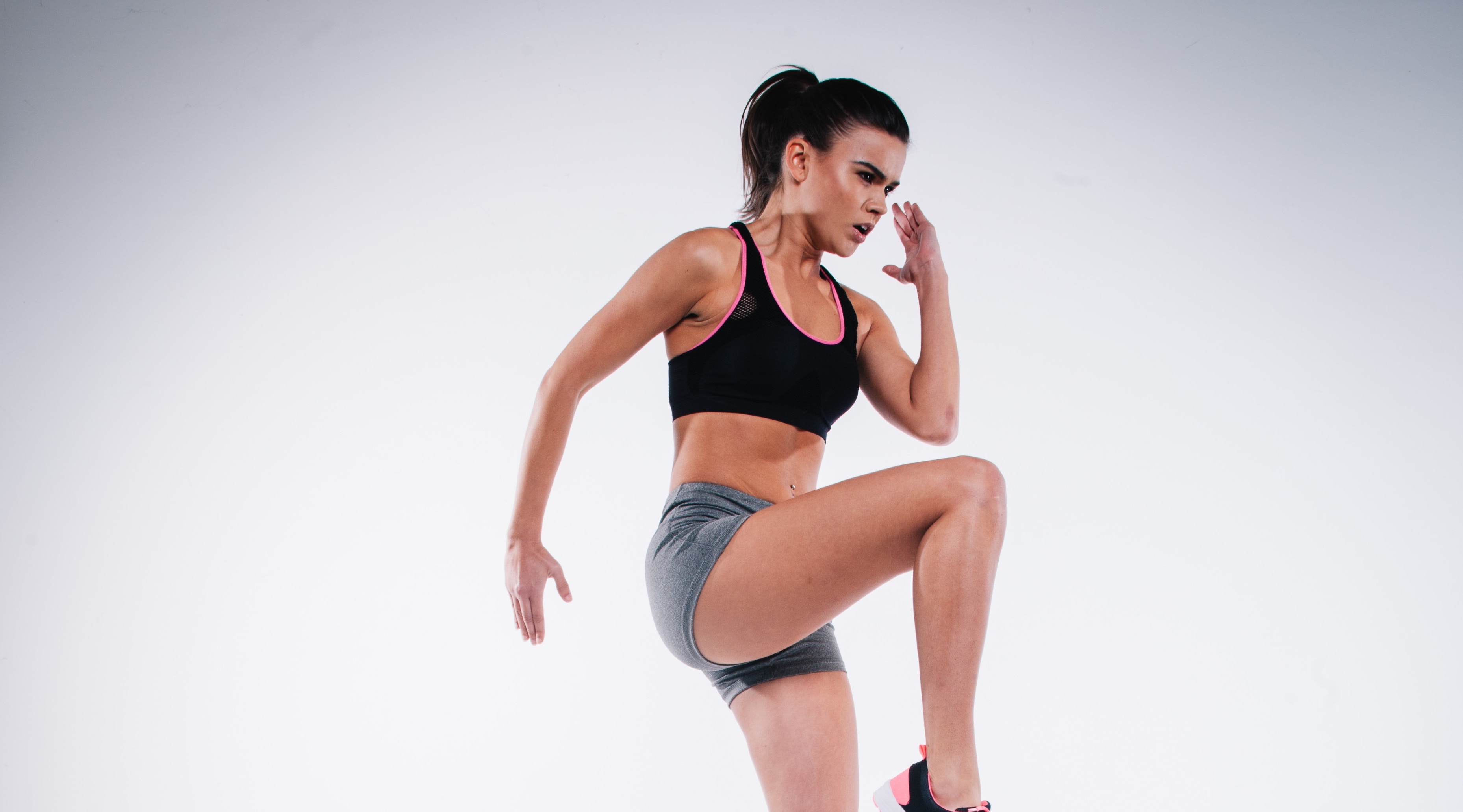
Honestly? It was a question that I’d never been asked outright before, but it’s also one that I think about incessantly. You might say that it’s the question that helped to define Iron Octopus Fitness: the programs I offer, the blogs I write, the entire mission of the business.
It’s one of those types of questions that your brain circles around endlessly. Coming up with answers, refining them, reshuffling them, reorganizing them. It’s also the type of question that you never verbalize. It doesn’t exist as a fully formed thought, just a bit of sand that the pearl is formed around.
So, no. No one had ever asked me THE QUESTION before.
“Are there one or two things YOU see leagues or skaters doing that make you crazy or that seem like really obvious fixes?”
YES. But…only one or two?
Try dozens.
Instead of inundating you with a comprehensive list of all the things that really grind my gears, I decided to take a page out of the best of teenage, rom-com, Shakespearian-based movies of the 90s and provide you with “10 Things I Hate About You: The Skater Training Version.”
IN NO PARTICULAR ORDER:
1. Not taking yourself seriously as an athlete.
I will never understand the people that show up at new skater orientations and are shocked by how difficult roller derby actually is. Or how much your muscles ache as your body adapts to playing. Or how much easier everything becomes when you start doing things that boost your performance.
The thing that REALLY pushes my buttons, though, is when skaters dismiss themselves as being “just a newbie” or playing on “just a rec league.”
Listen, last time I checked, playing RECREATIONAL roller derby is still an athletic pursuit. If you watched the Olympics and thought about what amazing athletes the speed skaters or figure skaters or hockey players are, then you don’t get to turn around and decide that you’re not one.
You’re a fucking athlete. Internalize it. This matters.
2. Thinking you’ve earned more difficult movements when you haven’t nailed the basics (true of both strategy and exercise).
Unless you’re Superman and can leap tall buildings in a single bound, you don’t get to jump in at the top floor. This is true of skate skills. This is true of strategy. This is true of off-skates exercises.
If you’ve never picked up a free weight before and think you can go into the gym and crush a barbell deadlift, well…you probably can’t. At least not without disastrous consequences. If your team can’t even move laterally as individuals without face planting, then moving laterally as a tripod is out of your league.
FOR RIGHT NOW.
It doesn’t mean you’ll never get there. What it means is that you need to take the baby steps to travel that distance. Slow and steady really DOES get you there. Build up to high-level skills by detouring through the basic parts first.
3. Ignoring the long game.
I talk about this A LOT. Not because I like the sound of my voice, but because it’s important.
Your season is a bit like a roller coaster. There are times when you’re at your peak. Times when you’re in a valley waiting for a specific performance. And all the times in between. Most importantly, it’s a looooooong roller coaster ride.
You need to look at it as such.
That means your training needs to be broken up into smaller periods to match what you’re doing on your skates during the season. You CAN train the same way for the entirety of your season. But I wouldn’t recommend it.
4. No progressive overload.
It bears repeating that if you aren’t challenging yourself to get better every time you kit up or set foot in the gym, you won’t get better. Adaptation is your body’s default state. It can (and will) adapt to most of the wild shit that you throw at it.
If you want your body to keep adapting, you have to keep challenging it to adapt.
But, pair this with number 2 and you’ll see that your challenges need to be small. Incremental changes over a long period of time equal big overall improvement. Whether it’s adding a little bit of weight or another rep each time you’re in the gym or partnering with somebody just a little bit better than you in practice, those challenges will add up.
Slow and steady, though. Sound familiar?
5. Not overtraining so much as under-recovering.
For some reason, we all cling to the ideology that if “a little is good, a lot must be better.” When in truth, your body needs time to process and repair all the work you’ve been doing.
Both skating and strength training essentially causes tiny tears and other damage to your muscle fibers that need time to be rebuilt by your body. (Oh hai, this is also why nutrition is so important. So that your body has the materials it needs to do this job.)
Your brain also processes cognitively details why you are sleeping. Which means that hitting the hay after a practice where you were struggling with a skill can help you get that skill faster. Give your brain time to mull over the details of the skill without your conscious negative talk getting in the way.
Most importantly, burnout in derby is very real. You are doing A LOT to skate and help keep your league running plus all the other pieces of your life. Taking time off and intelligently planning your training days and practices can make a big difference.
6. Ignoring serious alignment issues and harping on less serious ones.
Every derby athlete worth their salt has been told to ‘get lower’ at least once in their life, right?
That’s not a BAD thing. But relatively minor issues — like how low someone is when they start skating — are often easier to critique than the more serious issues we all bring to this sport — like knock knees.
Let’s ignore that fact that fixing your knocked knees can actually help you get lower in your stance and focus on the fact that a lot of coaches and roller derby athletes focus on what’s EASY TO SEE rather than what NEEDS TO BE FIXED.
I’m not requiring every skater or coach to get a movement assessment done, but I am saying that understanding biomechanics is key to performing at your best. So, I guess I actually am saying that you should get a movement assessment done and hire a coach that knows what they’re talking about.
Even coaches need coaches.
7. CROSSFIT.
It’s not a cool, hip, trendy fitness list without a drag of CrossFit. I don’t actually hate CrossFit, but I hate what it represents about the way roller derby athletes choose to train. Whether that training involves CF or something else.
You should avoid using any form of off-skates training that doesn’t take into account that you actually play a sport. (Unless you’re Erin Jackson and roller derby IS your cross-training. In which case, carry on.)
If your performance on the track is your top priority, you need to treat it as such. It needs to be the determining factor in how much you train. Not some WOD. Or the Zumba schedule at the YMCA.
The secondary — equally important — piece of this is finding a coach that can help you find that balance and prioritize your training. SOME CrossFit gyms have amazing trainers that can help you do this, but not all of them.
Really look at your programming and your coaching. Is it focused on your performance? Or something else?
8. Lying to yourself (and/or others) about how much you train.
Sometimes, I want to slap skaters that look me in the eye and earnestly insist that they cross train only to reveal that they do yoga and sometimes ride their bike to the store. I’m not trying to say that there’s no value in yoga or bike riding.
But it’s not enough.
And deep down these skaters usually know it.
Not being honest with yourself about how much you actually cross train is a way for you to avoid making a decision about whether to start or not. I obviously think you should train off-skates. I obviously think you should lift weights. I obviously have lots of opinions.
But it really comes down to you and what you decide to do. If you don’t want to do it, FINE. But own that (and the consequences of it).
9. No warming up or cooling down.
This is the one thing on this list that I STILL do with great frequency. And I also feel like absolute shit afterward.
Proper warm-ups and cooldowns are important for a ton of reasons. They prep your body physically and mentally for performance. They can help reduce the likelihood of soreness the next day. They are great places to stuff mobility and stability work (yes, you need that). Not to mention that as you get older — it’s happening to me — giving your body some additional time to prep is a near necessity.
And they really don’t take that much time.
I’m just going to repeat that last sentence to myself over and over again until I actually start to do it
10. Assuming all exercises translate to skates. THEY DON’T.
It really all goes back to that biomechanics thing. Skates change the way you can do certain movements. FOR LOTS OF REASONS. So stop assuming that adding skates to an exercise will be sufficient for cross training. It’s usually not.
This is, by no means, a comprehensive list of all the things that grind my gears. And sometimes things get bumped off the list and replaced.
But if you can manage not to do these things, you’re in good shape as an athlete.
Solid work, bro.
Want More?
If you’re interested in more exclusive content, access to my FREE resource library, and the slightly weird workings of my inner mind, you can sign up for the Iron Octopus Fitness email list HERE. Wherein I harass you weekly with all things intelligent cross training, mindset, and…other.


Love this